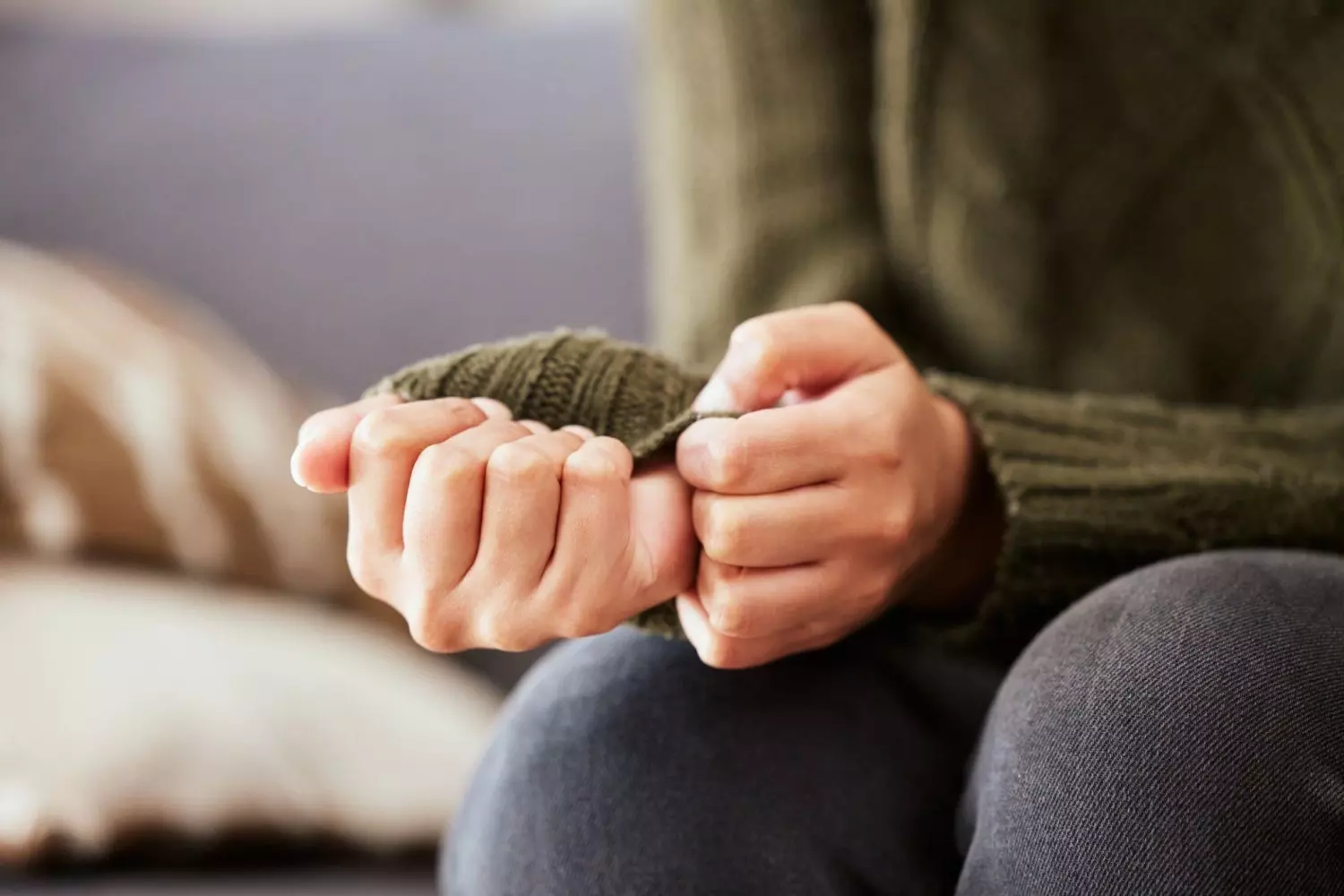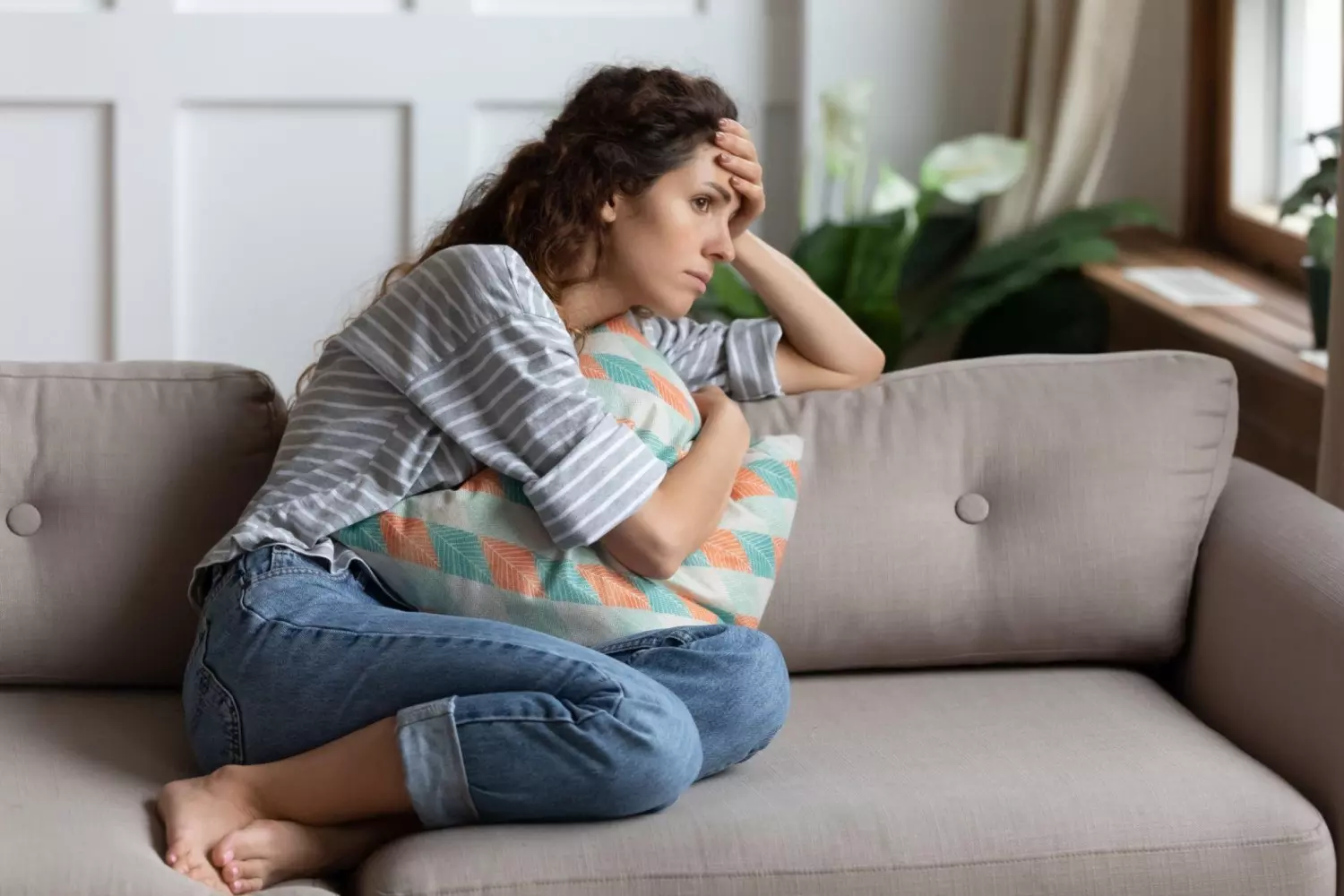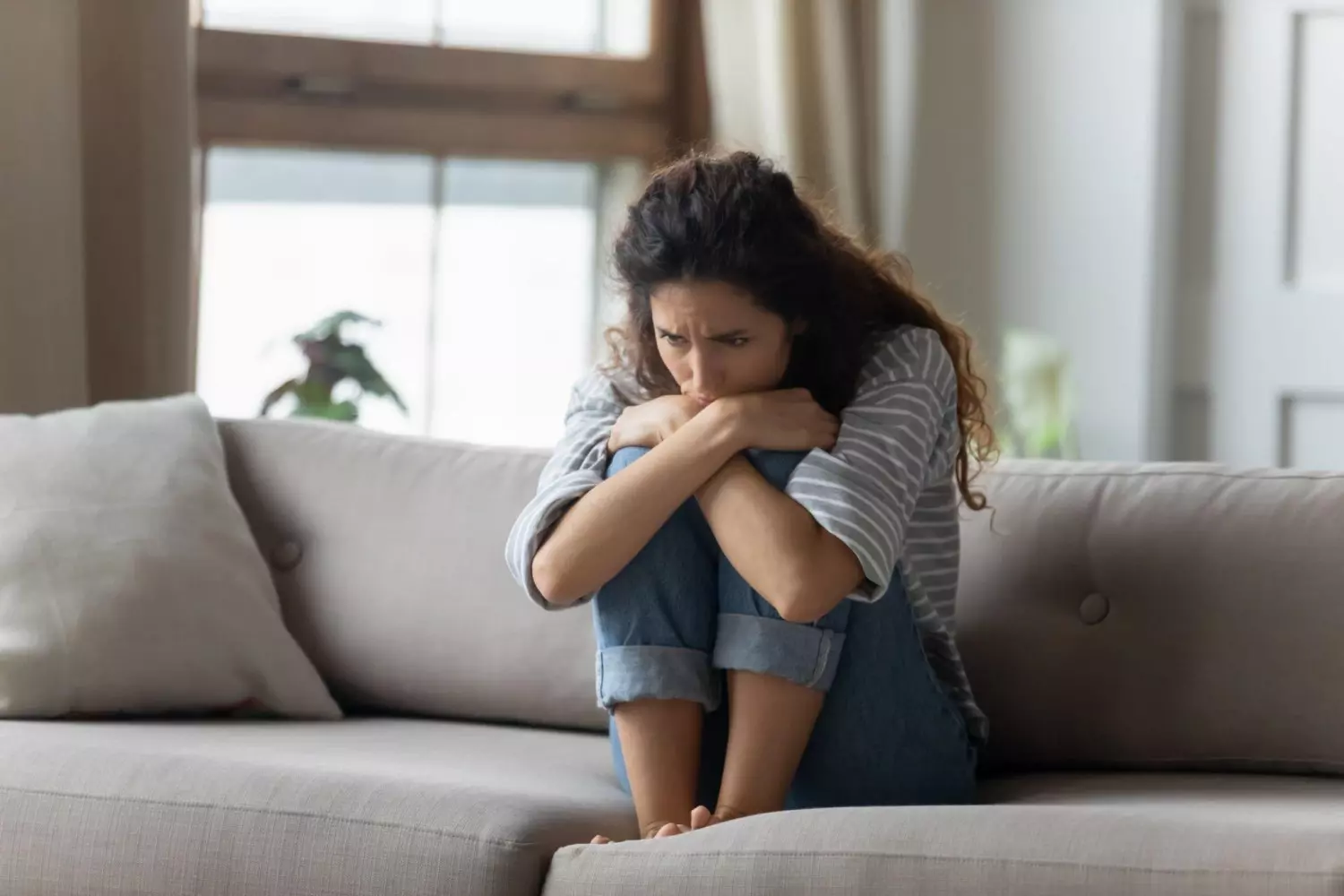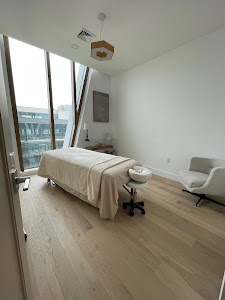Acupuncture for Anxiety
Acupuncture for Anxiety
What is Anxiety?
Anxiety is a natural emotional response that everyone experiences from time to time. It’s a feeling of unease or worry, often triggered by a real or perceived threat or stressor. In moderate amounts, anxiety can actually be a helpful response, as it can prompt us to stay alert, plan for the future, or take necessary precautions. However, when anxiety becomes excessive, chronic, or disrupts daily life, it can be classified as an anxiety disorder.

These disorders can significantly impact an individual’s quality of life and may require treatment, which can include therapy, medication, and complementary approaches or a combination of these treatments. The exact cause of anxiety disorders is complex and can involve a combination of genetic, environmental, and brain chemistry factors.
It’s essential to recognize the signs of anxiety disorders and seek professional help when necessary, as early intervention can significantly improve an individual’s well-being and overall mental health.
What Causes Anxiety?
Anxiety is a multifaceted emotion that can be triggered by a variety of factors. While some degree of anxiety is a normal and adaptive response to certain situations, chronic or excessive anxiety can result from several causes:
- Genetics. Anxiety signs include a family history of anxiety disorders. Certain genetic traits may predispose people to be more sensitive to stress and anxiety.
- Brain Chemistry. Imbalances in neurotransmitters, such as serotonin and norepinephrine, can contribute to anxiety. These chemicals play a crucial role in regulating mood and emotions.
- Environmental Stressors. High levels of stress due to work, relationships, financial problems, or traumatic events can trigger and exacerbate anxiety. Life changes, such as moving, divorce, or the death of a loved one, can be particularly anxiety-inducing.
- Personality Factors. Individuals with specific personality traits, like perfectionism or a tendency to be excessively self-critical, may be more prone to anxiety disorders.
- Medical Conditions. Certain medical conditions, such as thyroid disorders, heart problems, or chronic pain, can be associated with anxiety symptoms. Substance abuse and withdrawal from drugs or alcohol can also lead to anxiety.
- Trauma. Exposure to traumatic events, such as abuse or violence, can result in post-traumatic stress disorder (PTSD), a specific anxiety disorder.
It’s important to understand that anxiety often arises from a combination of these factors, making it a complex and individual experience.
Anxiety Symptoms
Recognizing the signs of anxiety is important for early intervention and seeking appropriate help. Anxiety can manifest in various ways, and the specific symptoms can differ from person to person. Here are common signs and symptoms of anxiety:
- Excessive Worry. People with anxiety often experience persistent, intense worry or fear about everyday situations or specific events.
- Restlessness. An inability to relax or a constant feeling of being on edge is a common sign of anxiety.
- Physical Symptoms. Anxiety can lead to physical discomfort, including muscle tension, headaches, stomachaches, and an increased heart rate.
- Irritability. Individuals with anxiety may become easily agitated or irritable, often without apparent reason.
- Sleep Disturbances. Difficulty falling asleep, staying asleep, or experiencing restless, anxious dreams can be signs of anxiety.
- Difficulty Concentrating. Anxiety can make it hard to focus on tasks, leading to decreased productivity and forgetfulness.
- Avoidance Behaviors. People with anxiety may avoid situations or places that trigger their anxiety, leading to social isolation.
- Panic Attacks. Sudden and intense episodes of fear or panic can be a sign of panic disorder, a specific type of anxiety disorder.
- Phobias. Specific phobias can cause extreme and irrational fears of certain objects or situations, like flying, spiders, or heights.
It’s important to note that the causes of anxiety can vary, and not everyone will experience the same symptoms.
Does Acupuncture Work for Anxiety?
Acupuncture, a traditional Chinese medicine practice, is explored as a complementary approach to dealing with anxiety and is considered one of the natural remedies for anxiety. While research on acupuncture for anxiety is ongoing, there is some evidence that say it may offer help with anxiety symptoms and signs.
Acupuncturists use fine needles to stimulate specific points on the body, known as acupuncture points. These points are believed to correspond to energy pathways, or meridians, that can influence various aspects of physical and mental health. Some proponents of acupuncture suggest that it can help rebalance the body’s energy, reducing anxiety.
Research studies have shown some results when it comes to the effectiveness of acupuncture for anxiety. Some individuals report experiencing a sense of relaxation and reduced anxiety after acupuncture sessions, while others may not find it as beneficial. It’s important to remember that the effectiveness of acupuncture can vary from person to person.

Benefits of Acupuncture for Anxiety
Acupuncture for anxiety can offer various potential benefits in providing anxiety relief and complementing traditional treatments. Here are some key advantages associated with using acupuncture anxiety treatment:
- Holistic Approach. Acupuncture takes a holistic approach to health, focusing on balancing the body’s energy flow. This can have a calming effect on the mind and body, potentially alleviating anxiety symptoms.
- Stress Reduction. Acupuncture sessions are often accompanied by relaxation and deep breathing, helping individuals manage stress and improve their overall sense of well-being.
- Natural Remedies for Anxiety. For those seeking natural remedies for anxiety, acupuncture is drug-free and non-invasive, making it an attractive option for anxiety management.
- Complementary Treatment. Acupuncture can be used in conjunction with other anxiety treatments, such as therapy and medication, enhancing their effectiveness and offering a more comprehensive approach to managing anxiety and depression.
- Anxiety Acupuncture Points. Acupuncture therapists target specific anxiety acupuncture points, which are believed to release endorphins, the body’s natural painkillers, promoting relaxation and reducing anxiety.
- Ear Acupuncture Points for Anxiety. Auricular acupuncture, which focuses on ear acupuncture points for anxiety, has gained popularity as an effective method for managing anxiety symptoms.
While acupuncture may not be a stand-alone solution for everyone, it can be a valuable addition to a broader anxiety management plan. Individuals considering acupuncture for anxiety should consult with a qualified acupuncturist to discuss its suitability and potential acupuncture benefits for anxiety as part of their treatment plan.
How Often Should You Get Acupuncture for Anxiety?

- Initial Intensive Phase. At the beginning of your treatment, acupuncture sessions may be more frequent, typically once or twice a week. This initial intensive phase aims to establish a foundation for anxiety reduction and symptom management.
- Progress Evaluation. As you progress and start experiencing relief, the frequency may decrease. Many people find relief from anxiety with fewer sessions and may transition to a maintenance schedule.
- Maintenance Phase. After the initial phase, you might move to a maintenance schedule of once every few weeks or once a month to sustain the benefits and reduce anxiety symptoms over the long term.
- Consult with a Practitioner. The frequency of acupuncture sessions should be determined in consultation with a qualified acupuncturist who can assess your specific needs and adjust the treatment plan accordingly.
Remember that acupuncture is often used in combination with other anxiety treatments and is not a one-size-fits-all solution.
Experience the best Acupuncture for Anxiety at Pulse Acupuncture Center
Experience the best in acupuncture for anxiety at Pulse Acupuncture Center, where we specialize in providing natural anxiety relief through acupuncture treatment for anxiety.
At Pulse Acupuncture, we understand the importance of holistic and natural approaches to managing anxiety. Our experienced acupuncturist is dedicated to helping you find effective solutions for anxiety without relying on medication.
Acupuncture is a time-tested practice that can help with anxiety by rebalancing the body’s energy flow, promoting relaxation, and alleviating the symptoms of anxiety. Our expert is well-versed in targeting specific acupuncture points for anxiety, ensuring that you receive a personalized treatment plan that meets your unique needs, as well as combining acupuncture with herbal remedies for anxiety for a maximum result.
Our approach combines the ancient wisdom of acupuncture with modern techniques, making it an ideal choice for those seeking natural anxiety relief. We work closely with each patient to determine the optimal frequency and duration of acupuncture sessions, tailoring our services to your individual requirements.
At Pulse Acupuncture, we prioritize your well-being and aim to provide you with the best acupuncture treatment for anxiety. Our goal is to help you experience a sense of calm, reduce anxiety, and enhance your overall quality of life. Contact us today to schedule a consultation and get an acupuncture help with anxiety.
-
Marina Doktorman, M.S., L.Ac., is an experienced acupuncturist who obtained her Masters of Acupuncture from the Tri-State College of Acupuncture in New York City in 2001. During her studies, she focused on Chinese Herbology, a branch of Traditional Chinese Medicine (TCM) that utilizes herbs to complement acupuncture treatments. Marina is licensed in both New York (NY) and New Jersey (NJ) and holds a Diplomate of Acupuncture from the National Certification Commission for Acupuncture and Oriental Medicine (NCCAOM), indicating her expertise in the field.
Why Pulse Acupuncture?

Experience
Marina Doktorman, L.Ac. has over 20 years of clinical experience.

RELAXATION
At Pulse Acupuncture, we aim to cultivate a spa-like environment.

Comfort
All of our needles are of the highest quality for painless insertion.
Patient Reviews in Brooklyn


I had the pleasure of working with Marina, Laryssa, and Jaesung, and they have all been absolutely amazing. Thanks to this incredible team, I can now sit, drive, walk, sleep comfortably, and function normally again. I truly don’t think I’d be where I am today without their care and expertise.
Pulse Acupuncture has become my go-to place for anything pain-related. The entire team is warm, compassionate, and professional, with outstanding bedside manners.
I highly recommend Pulse Acupuncture to anyone experiencing pain and looking for effective, non-invasive treatment. Truly life-changing! 😊











Marina is very accommodating, kind, and attentive, and her staff is a pleasure to deal with. I highly recommend Pulse.














Acupuncture has truly changed my life and has helped me in ways I didn’t even know were possible.
I started doing acupuncture to balance my hormones after 2 years of unsuccessful fertility treatments. When I started seeing Marina, my periods were starting to be regular and I was dealing with a few different symptoms which we started treating right away (constipation, random headaches, body aches)… in the last 3 years I have not been sick (no flu, have never tested positive for COVID) - Marina even treated me for allergies more than a year ago during an allergy episode in changing seasons.
Also want to mention Larissa as I started seeing her in Marina’s beautiful office and she’s also contributed to my wellness journey. Acupuncture is my favorite wellness practice, I see them regularly and have never felt better. I sometimes just tell them whatever I’m thinking/feeling knowing they will stick some needles in different places of my body and I come out floating and feeling so relaxed.




Excellent service- great results- highly recommended ~!





Marina is not only incredibly knowledgeable, but also very calming and has great bedside manners. If you're looking for a fantastic acupuncturist I can't recommend her enough!!













After 10 minutes of the procedure, you get into a different reality. Marina is knowledgeable, answers all the questions. After the procedure, the skin of the face glows, the body becomes lighter by a couple of pounds. I've been looking for such a procedure and state of mind for a long time.


I am beyond grateful to Marina, because after trying so many things, I almost lost hope. highly recommend Pulse Acupuncture and Marina for anyone seeking relief from pain or other health concerns.
The acupuncture sessions themselves are incredibly relaxing and therapeutic. Marina's gentle touch and precise needle placement always leave me feeling calm and rejuvenated. She also incorporates other techniques, such as cupping, which have been very beneficial for my overall health and wellbeing.
In addition to her skill as an acupuncturist, Marina is also a wonderful person to work with. She is warm, friendly, and genuinely cares about her clients' wellbeing. I always leave our sessions feeling refreshed and uplifted, both physically and mentally.
Overall, I highly recommend Pulse Acupuncture and Marina for anyone looking for high-quality acupuncture and personalized care. Thank you, Marina, for your exceptional service and dedication to helping others achieve optimal health!
Anxiety Acupuncture - FAQ
Are there specific acupuncture points used to treat anxiety?
Yes, certain acupuncture points are known to calm the mind, balance hormones, and alleviate symptoms of anxiety. Commonly used points include Heart 7 (Shenmen), Pericardium 6 (Neiguan), and Spleen 6 (Sanyinjiao). However, treatment is typically tailored to the individual’s unique presentation of anxiety.
How many acupuncture sessions are typically needed for anxiety relief?
The number of sessions required can vary based on the individual’s response to treatment and the severity of their anxiety. Some may feel immediate relief after just one session, while others might benefit from regular treatments over several weeks or months.
Are there any side effects or risks associated with acupuncture for anxiety?
When performed by trained and licensed practitioners, acupuncture is generally safe. Some people might experience mild soreness or bruising at the needle insertion sites. Rare side effects can include infections or injury, but these are uncommon with proper technique and sterile equipment.
How does acupuncture compare to conventional treatments for anxiety?
Acupuncture can offer an alternative or complementary option for those with anxiety. Some individuals find acupuncture to be as effective as, or even more effective than, certain conventional treatments, while others see it as a beneficial addition to their existing treatment regimen.
Contact us
Acupuncture therapy at Pulse Acupuncture Practice, at Clifton, NJ and Williamsburg, Brooklyn, NYC offers unique combination of various cupuncture types for healing on all levels: emotional, spiritual and physical by integrating ancient wisdom of energy healing with modern acupuncture techniques.


